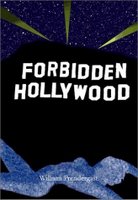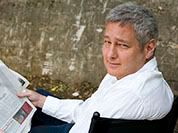You Hate Evolution Because Your Dad Wouldn't Take You to the Circus
Resistance to Science Has Early Childhood Roots
By Dan Vergano, USA Today
May 20, 2007
“Stem cells, global warming, evolution, vaccination — why do some scientific ideas push political and societal hot buttons? Proving that scientists can study practically anything, a pair of psychologists considered "resistance to science" as a subject in its own right. And they found deep roots, childhood ones, to some of the contention that increasingly crowds public discourse on science issues...
…In the last three decades, studies of children show that they quickly pick up an intuitive understanding of how the world works, say the researchers. For example, babies know that objects fall and are real and solid (even though physics experiments show they are mostly made of atoms containing empty space.) "These intuitions give children a head start when it comes to understanding and learning about objects and people. However, they also sometimes clash with scientific discoveries about the nature of the world, making certain scientific facts difficult to learn," the review says…”
I didn’t have to do any scientific research at all to recognize that this theory hits the nail right on the head. The people who reject scientific findings when they clash with their beliefs--tend to do so for personal and not rational reasons. And those personal reasons are often rooted in childhood.
When I was a doorman at a hotel in New York, there was an old retired guy on a pension, a little old man who was unalterably opposed to abortion. He knew every anti-choice argument that the Church put forth—he’d committed them all to memory and argued all of them passionately, telling me every time the subject came up (and he brought it up often) that a fetus was a human being and that its life must be protected. After listening to this for a couple of weeks, I began to wonder why this old man was so concerned, so passionate about the rights of a fetus. Then I realized that—of course this guy thinks that the life of a fetus must be protected at all costs. He himself looked a like a fetus! He looked like a five foot tall fetus, wearing a shabby old overcoat, with a scarf around his neck, and horn rimmed glasses. So with him, the issues was personal.
My theory was confirmed when one day he brought me some snapshots that had been taken of him as a child. The old black-and-white photos told the story: he had looked like a fetus when he was a kid, too! So of course he grows up thinking that the life of a fetus must be protected; he’s identified and been identified with fetuses his whole life. That’s how deeply rooted and personal his belief was.
How about all the people who reject scientific evidence of the immense age of the universe? A significant number of Americans, millions, still believe in that the universe is quite young, only six to ten thousand years old. (Some of them have even opened up a new “museum” that purports to show prehistoric human beings interacting with dinosaurs. Yes, they have.)
A scientist I heard on evangelical radio was passionately arguing the theory of a “young universe.” A caller pointed out to him that the astronomical evidence indicates that the universe is very old. For example, some of the starlight that is just reaching the earth now has traveled so far and so long that the star that emitted that light may already be burnt out. The creationist scientist rejected this argument, saying that God may have created the light to “look old” to us, and that some scientists were taken in by God’s “trick”, but he was not.
A likely explanation for that person’s dismissal of the scientific explanation is that he was abused as a child in such a way as to make him reject astronomical evidence. For example, his father may have been teaching him how to play dodgeball, pelting the little fellow with the ball over and over again as he made his clumsy, childlike attempts to evade it. And that plastic inflatable ball may have been decorated with stars; a not uncommon motif in the decoration of such toys. The grown creationist has repressed the painful memory of this childhood trauma, which now expresses itself in his categorical denial of the significance of astral evidence.
Another example (oh, come on, one more—I’m on a roll.) Many ardent creationists reject the notion that we are cousins of the apes. There is no principled scientific reason for disagreeing with this supposition—so the reason for their outright rejection of the theory must be rooted in some childhood experience. Perhaps when these people were children, they were embarrassed or abused by their cousins, the children of their uncles and aunts. Their cousins may have conducted themselves “like apes”—beating up the little creationist-to-be and taking his food, mating out in the woods, grinning and masturbating, shitting everywhere and anywhere any time the mood took them.
And so the little child grows up subconsciously rejecting the notion that he is in any way related to these “animals.” And this became the personal basis for his creation theory of his own "divine" origins—which he then seeks to rationalize with numerous pseudo-scientific arguments. He has long forgotten his sub-human cousins, ignoring their Christmas cards and appeals for help with their trailer payments—but subconscious scars remain and drive his anti-scientific bias. If this explanation seems unlikely to you, remember that many of these opponents of evolution grew up in rural areas.
Labels: evolution creationism science



0 Comments:
Post a Comment
<< Home